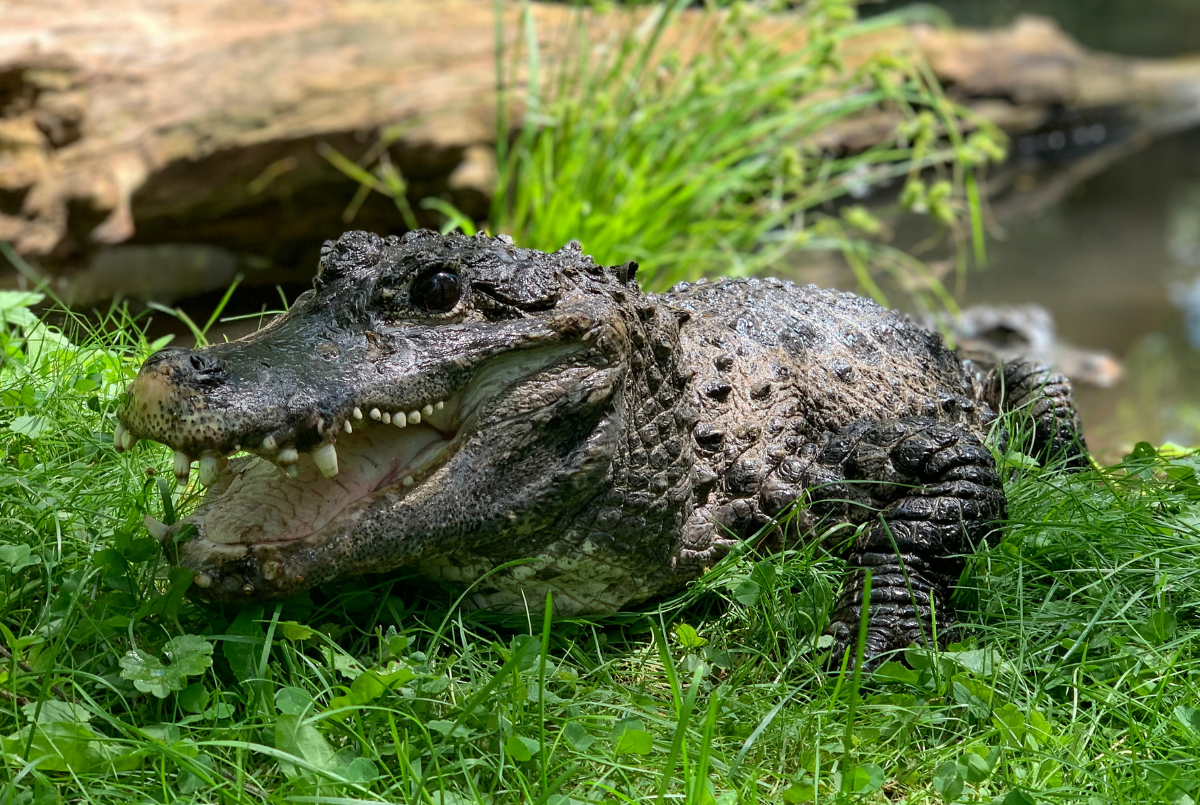Chinese Alligator

Basic Information:
Scientific Name: Alligator sinensis
Habitat: : Although their range was once much larger, today the Chinese alligator can only be found in the lower Yangtze River Basin in China. Here, they are found in slow-moving rivers and streams, lakes, ponds, and swamps. However, since available habitat is limited, they are more often found in irrigation ditches and ponds on agricultural land.
Diet: Chinese alligators eat snails, insects, fish, frogs, and small mammals and birds if available.
Size: 4.9 to 6.9 feet long
Weight: 79 to 99 pounds
Lifespan: 25 years according to AZA Species Survival Statistics
Distribution Map:
I.U.C.N. Conservation Status:

What does this mean?
Critically Endangered – a species determined by the International Union for Conservation of Nature (I.U.C.N.) to possess an extremely high risk of extinction as a result of rapid population declines of 80 to more than 90 percent over the previous 10 years (or three generations), a current population size of fewer than 50 individuals, or other factors (such as severely fragmented populations, long generation times, or isolated habitats).
Our Chinese Alligators:
Bizi (Male) – Born August 8, 1988
Ling (Female) – Born August 3, 1985
About Chinese Alligators:
While once a prominent species across the Chinese waterways of the lower Yangtze River Basin, they were so valued that they were often represented in traditional Chinese folklore. Overtime, as farmland has spread across even more of China, these alligators have become more and more threatened due to losing areas that they can safely live AND from being killed by local farmers. In fact, they are so endangered right now that as of 2021 there were only though to be about 150 Chinese alligators left in the wild! Thankfully, there is still hope of this species! In the latter 1900s, breeding programs were implemented to regrow this species’ population in human care. As of 2016, there were estimated to be about 20,000 alligators currently in human care. Overtime, the hope is to strategically reintroduce members this group back into the wild to help stabilize their natural population!
Did You Know?!
- There are thought to be less than 150 Chinese alligators left in the wild today due to habitat loss.
- Historians believe that the mythical dragons found in Chinese art and literature are actually Chinese alligators.
- There are only two living species of alligator; The Chinese alligator and the American alligator. The Chinese alligator is much smaller than the American alligator; Their average length is about 4 ½ to 5 feet. Males are usually larger than females.
- Female alligators will care for their young for several weeks, sometimes even several years! They protect their young, help them hatch, and carry them from their nesting site to the water.
- Chinese alligators are known to dig extensive tunnels with multiple chambers. They stay in their tunnels during the day, as they are primarily nocturnal, and during the cold winter months.
